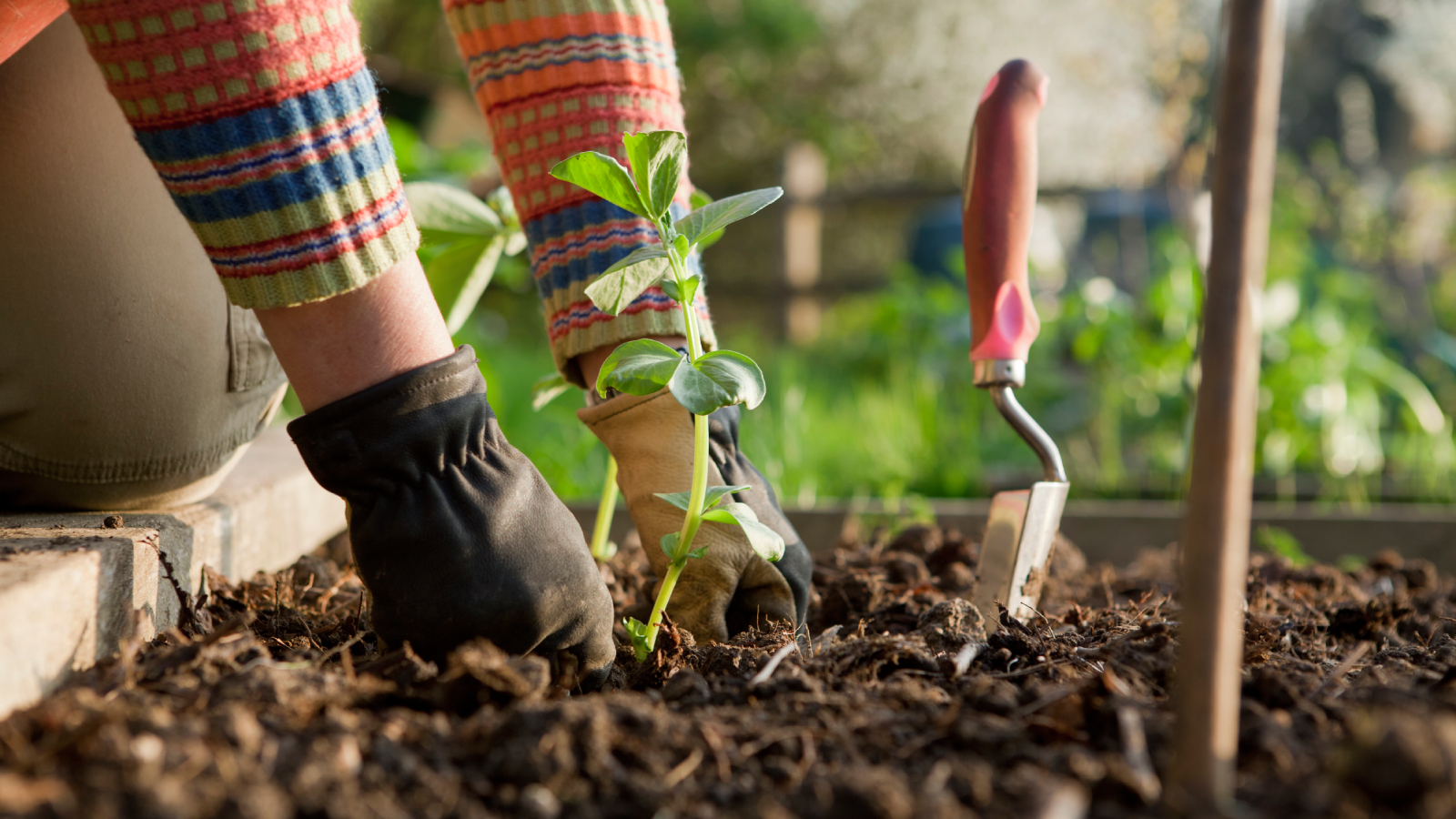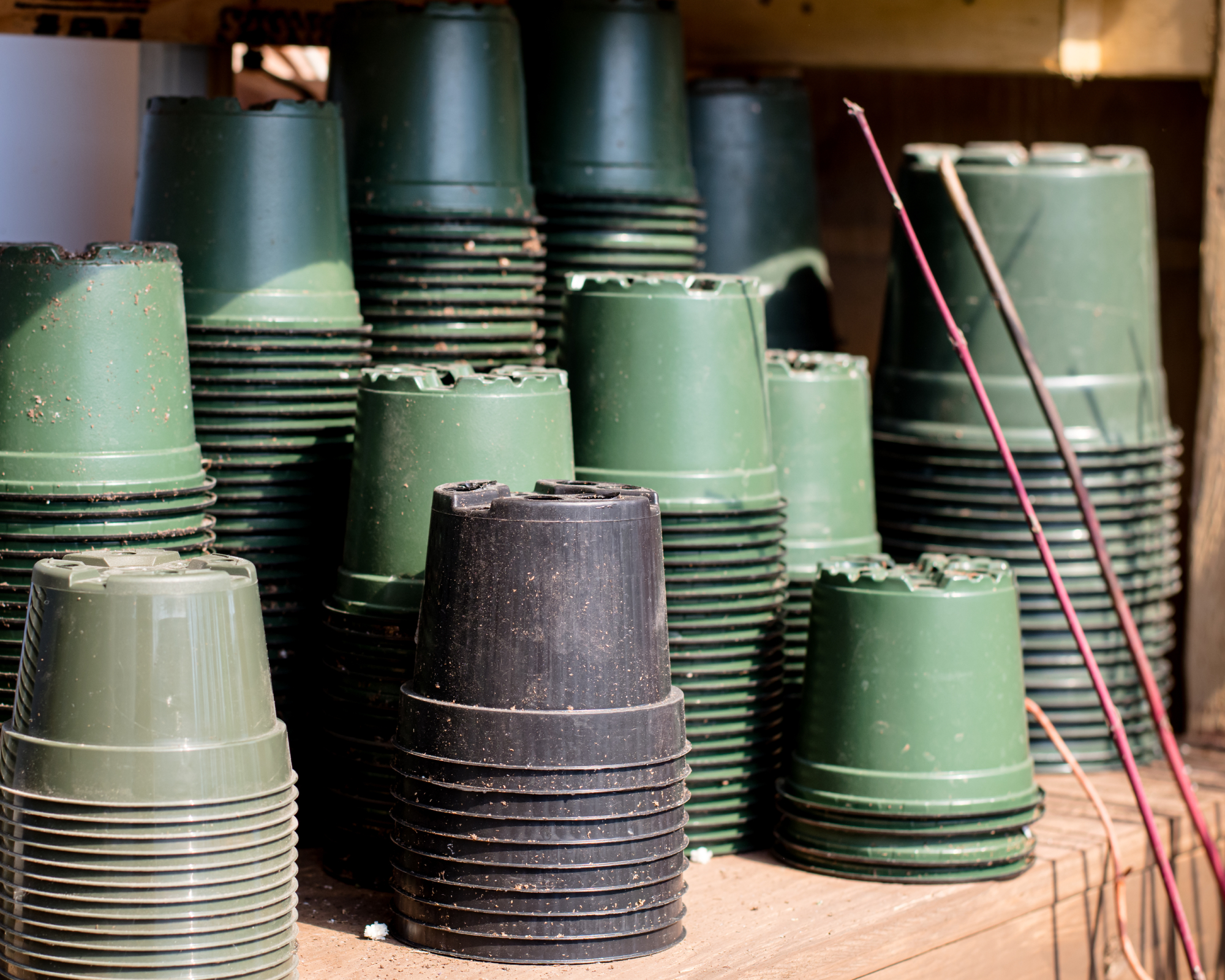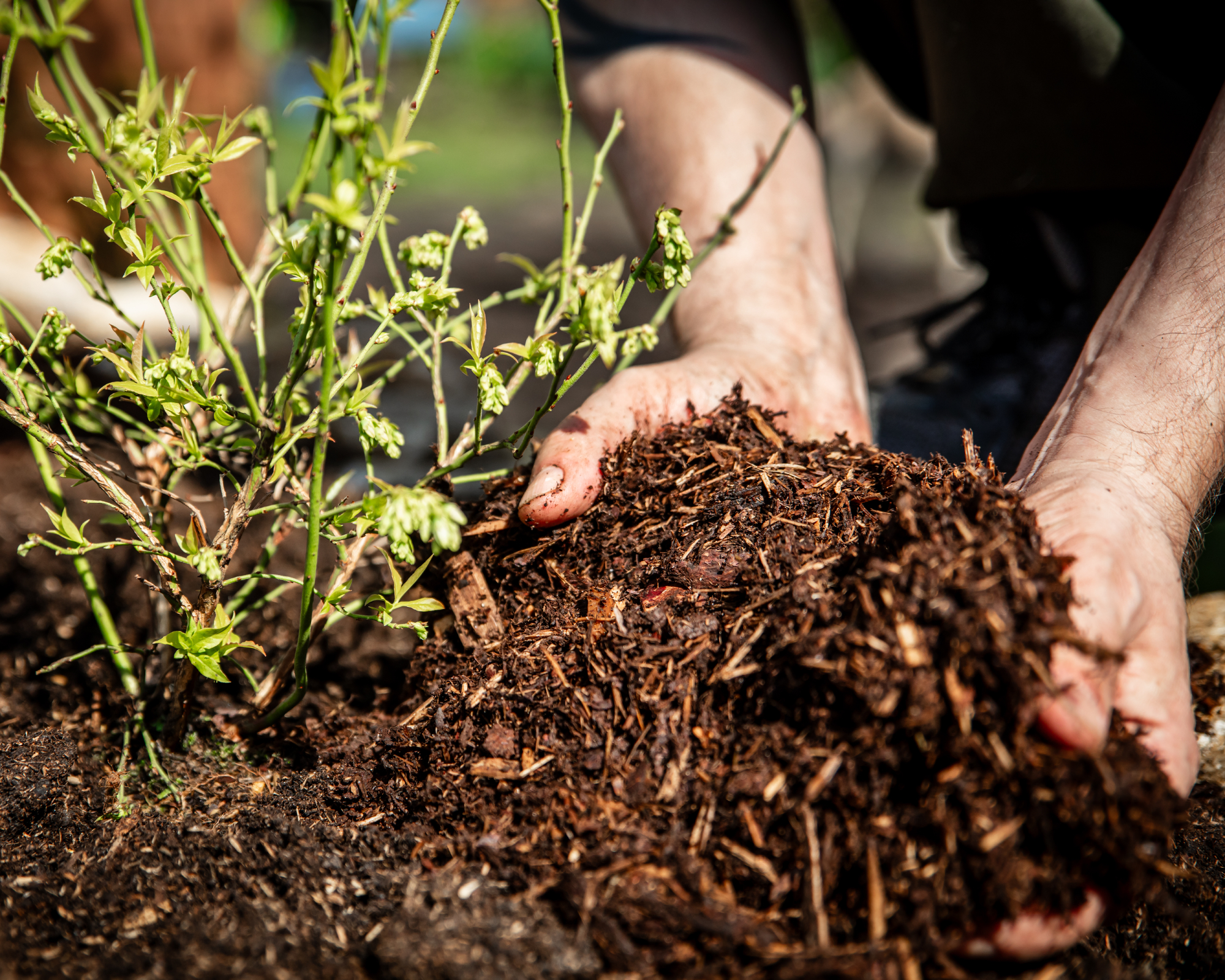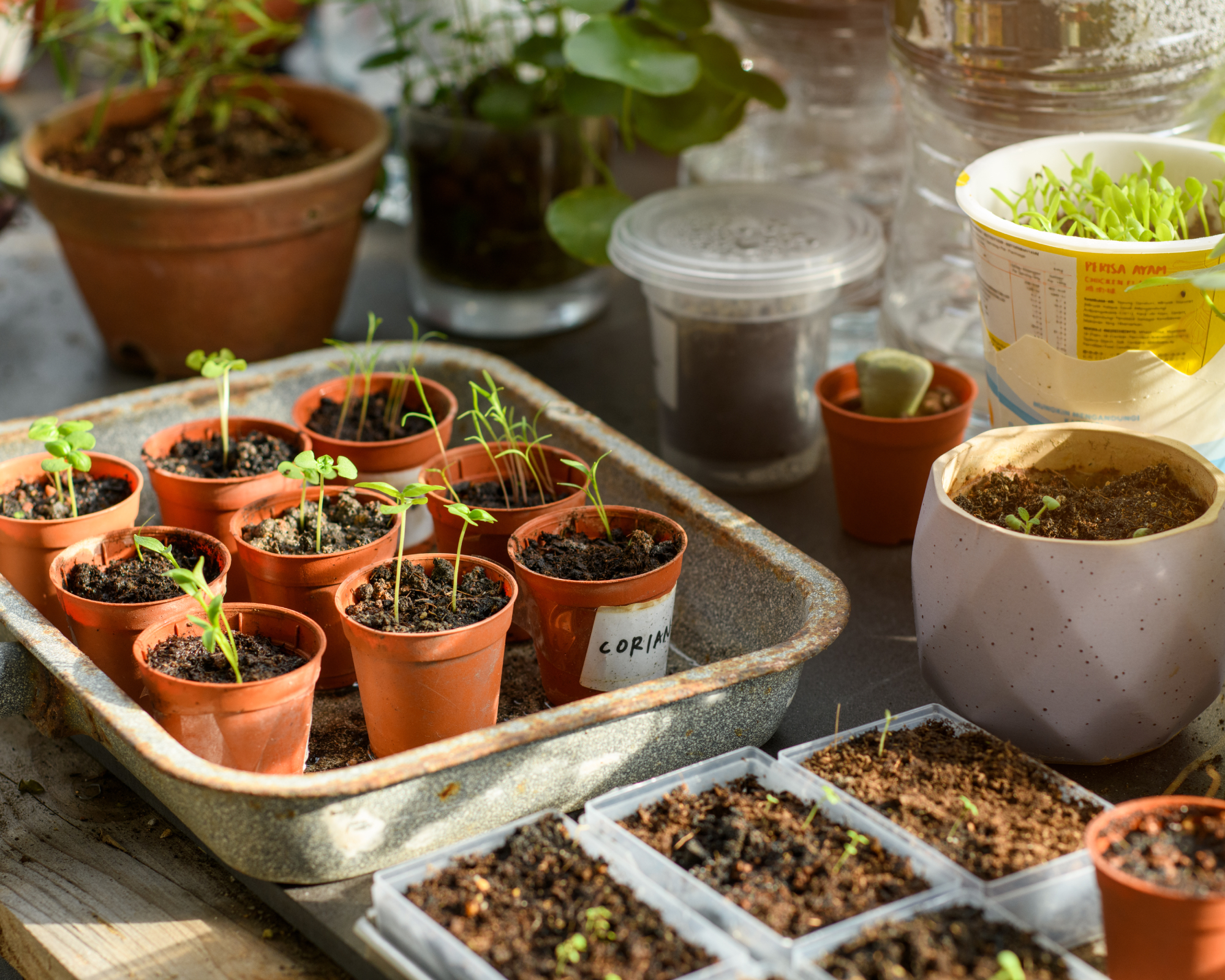This Clever Mulching Hack Protects Seedlings and Makes Mulching Quick, Clean, and Easy
The plant pot mulching hack will protect your new plants and make mulching as easy as can be. Learn how to use it and tips for success.

Kim Stoddart

Sign up for the Gardening Know How newsletter today and receive a free copy of our e-book "How to Grow Delicious Tomatoes".
You are now subscribed
Your newsletter sign-up was successful
For the sake of transparency, I hate mulching my garden. Mulch makes my garden look beautiful and helps my plants survive the boiling temperatures of summer, but it is such a pain. I am always looking for ways to make gardening simpler and easier, so I was excited when I learned about this plant pot mulching hack.
The benefits of using mulch are impressive. Mulch keeps precious moisture in the soil even on the hottest days of summer, thus reducing the amount of water you need to apply. Mulching helps suppress weeds too.
Saving money, conserving water, and making beds look tidy are all honorable goals, but I still have to drag myself kicking and screaming to mulch my garden every year. The plant pot mulching hack is sure to help ease the mulching process for me and, hopefully, you too!
What is the Plant Pot Mulching Hack?

This hack is quite simple and makes use of a common item all of us gardeners have laying around: the humble plastic plant pot. I have multiple stacks of nursery pots in all different sizes in my shed and I always say I am going to find a way do something with the old plant pots, but still they sit. This hack puts those plastic pots to good use, even if just for a short time.
An issue that arises every spring and summer is how best to mulch around newly planted seedlings without burying them, snapping them off, or stomping them. I have crushed more seedlings with mulch than I would care to admit. Sometimes they bounce back and other times they don’t make it.
All this hack requires is for you to take all those little nursery pots and place them upside down over your new seedlings and then spread mulch around them. The pots protect the delicate seedlings underneath. The mulch looks neater, the plants don’t get buried, and there is less risk of accidentally stomping on any seedlings as you go about spreading mulch in your beds.
Does the Plant Pot Mulching Hack Work?

This hack works! It makes mulching quicker, cleaner, easier, and plants are well protected. This is also a great way to reuse plastic plant pots that are just laying around. Giving your plastic pots another life is a good thing for you and for the environment.
Sign up for the Gardening Know How newsletter today and receive a free copy of our e-book "How to Grow Delicious Tomatoes".
Using eco-friendly mulch like pine bark mulch from Home Depot is another way to help the environment while keeping your garden beautiful. Pine bark mulch is a byproduct of the lumber industry so it helps give new life to a product that would be trashed otherwise.
Tips for Success

There are a few things that are good to do before you get started using this new gardening hack.
The first is that you should ensure the plastic pots are free from pests or plant diseases before you pop them over your newly planted seedlings. If you aren’t sure of the condition of the pots, you can clean used pots with some soapy water, and a swipe of 70% isopropyl alcohol on a rag will help to kill anything left behind.
It is also important to make sure the pots are big enough to cover seedlings without crushing them. We don’t want to crush the plants while trying to save them from being crushed!
Other than those little things to be aware of, this is a simple and effective way to make mulching easier, cleaner, and protect your plants. Give it a try!

Kathleen Walters joined Gardening Know How as a Content Editor in 2024, but she grew up helping her mom in the garden. She holds a bachelor’s degree in History from Miami University and a master’s degree in Public History from Wright State University. Before this, Kathleen worked for almost a decade as a Park Ranger with the National Park Service in Dayton, Ohio. The Huffman Prairie is one of her favorite places to explore native plants and get inspired. She has been working to turn her front yard into a pollinator garden.
- Kim StoddartContent Contributor, Award-Winning Journalist, and Author